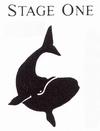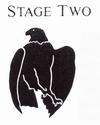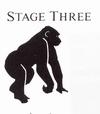(From THE DAWN HORSE TESTAMENT, The Testament Of Secrets Of The Divine World-Teacher and True-Heart-Master, DA AVABHASA (The “Bright”)
Each Of The Stages Of Life (In The human Context) Is
Associated With A Unique Form Of human Adaptation and
Growth. And Each Form Of Adaptation Is Associated With a
specific human organ (or Structural Pattern). The First Three Stages Of Life Occur Within The Context
Of the lower organ functions Of human Adaptation, and, In
That Context, human Development Is Associated With
individuation, socialization, and integration Of The
psycho-physical Patterns Of the frontal personality.
Un-Happy (or egoic) individuation Tends To Be Associated
With A Feeling Of Separation (Separateness and
Separativeness) and, Thus, Only A Partial Willingness To
Relinquish (or Even To Accept) The Feeling Of Dependency On
the mother (or On others In General). This Feeling Of
Separation Ultimately (or Primarily) Involves The Sense Of
Disconnection From The Ultimate Source Of Support and Love
(Which Is The Living Divine), and It Also Becomes A General
Doubt or Anxiety About other human beings On whom one
Depends For Love. Sex-Differentiation (Whereby sexual
self-identity and the sexual identification of others Become
Basic To Every Situation Of Relationship) Begins Even At
This Stage, but all relationships are experienced from the
viewpoint Of Dependency and Reluctance To Accept The
Situation Of individuated Existence. The anal function Begins To Develop Coincident With the
oral function, but socialization itself Truly Begins Only
After The Basic Struggle With individuation Has Reached A
Workable (Even Though Un-Happy, or self-Contracted)
Settlement. (Thus, It Can Be Said That, As A General Rule,
The First Stage Of Life Involves the first seven years after
birth, and The Second Stage Of Life Involves the second
seven years, or The Period From early childhood Until
puberty.) Character Motivations That Are Rooted In the biology and
psychology Of sex-Differentiation Are, In The Second Stage
Of Life, Extended and Developed In An Expanded social
Context, and individuation (Including A Partial but
Significantly Defined Sense Of sexual self-identity), Rather
Than Ambiguously Differentiated Dependency, Becomes A
Catalyst Toward social Exploration. When individuation Has Become A Workable egoic
Settlement, the individual Begins To Struggle, As an
individual, With relationships (First On the intimate scale,
and Then In an ever larger social sphere). The Second Stage
individual Tends To Continue To function In The Context Of
Dependency, but With A More Fully Developed Sense Of
Separate self, Independence, and Mobility. Likewise, There
Is A Gradual Discovery That There Are many kinds of
relationships, and all of them Carry A Test, A Demand, and
An Obstacle That Offends The Want To Be Dependent. The anal
Phase Of Development Represents An Early Stage Of
self-Awareness, In Which the individual’s self-Esteem
(Desirability or Lovableness) Is Apparently At Stake. Thus,
Doubt Of the ego-self and Doubt Of The Love In others
Appears. And So, The Second Stage Of Life Tends To Develop
Only To The Degree Of A Tentative (or ego-Based and
Ultimately Unsatisfactory) Resolution Of the relational and
social character. Whereas The Feeling Of Separation (and
Separativeness) Characterizes The First Stage Reaction (or
egoic Presumption), The Feeling Of Being Rejected (and The
Felt Need To Reject or Punish others For Un-Love)
Characterizes The Second Stage Reaction (or egoic and
Necessarily Un-Happy Presumption). The Third Stage Of Life Tends To Be Wasted (or Made
Un-Happy) By Indulgence In Patterns That May Be Called
adolescent. That Is To Say, The Third Stage Of Life Does Not
Tend Toward Full (and Happy) Resolution, Because The First
Two Stages Of Life (Which Are The Basis For Growth In The
Third) Tend To Be Unresolved (or Patterned By Un-Happiness).
As A Result, The Third Stage Of Life Becomes A Fruitless
Drama Of Conflict Between Two Alternating and Contrary
Impulses, The One Toward infantile and childish (or Passive
and Weak-minded) Dependence, and The Other Toward willful
and Rebellious (or self-Destructive and other-Destructive)
Independence. The Life-Process Is Disturbed By This Un-Happy
and Irresponsible Drama, and the mental faculties and the
integrating function of the will Are Thus Impaired or
Retarded In their Ability To Develop the True adult
character, which character Is Characterized By Basic human
Equanimity, Discriminative Intelligence, Responsive
Heart-Feeling, and The Active Impulse (or Counter-egoic
Will) To Always Continue To Grow (By self-Transcendence,
and, Necessarily, By Entering Into The Devotional and,
Eventually, Spiritual Context Of The Fourth Stage Of
Life).
 The
First Stage Of Life Is The Process Of psycho-physical (and
thus also emotional) individuation, Based On Identification
With the Separate and personal gross physical body in the
waking state. The First Stage Of Life Is Also Associated
With the oral (or nutritive) function. At birth, the infant
Is Separated From The Situation Of Unity With the human
mother, and This Begins A Struggle With The Fact Of
individual Existence. This Struggle Is Displayed In The
Context Of oral Dependence On the mother as a Separate body
(and Dependence On food that Must Be Acquired outside If
individual bodily Existence Is To Continue). Whatever Occurs
In The Drama Of breast-feeding and The Transition To food
sources apart from the mother’s body, human beings Tend To
Develop A Fundamental Reactive Habit (or Presumption Of
Un-Happiness) At This Stage.
The
First Stage Of Life Is The Process Of psycho-physical (and
thus also emotional) individuation, Based On Identification
With the Separate and personal gross physical body in the
waking state. The First Stage Of Life Is Also Associated
With the oral (or nutritive) function. At birth, the infant
Is Separated From The Situation Of Unity With the human
mother, and This Begins A Struggle With The Fact Of
individual Existence. This Struggle Is Displayed In The
Context Of oral Dependence On the mother as a Separate body
(and Dependence On food that Must Be Acquired outside If
individual bodily Existence Is To Continue). Whatever Occurs
In The Drama Of breast-feeding and The Transition To food
sources apart from the mother’s body, human beings Tend To
Develop A Fundamental Reactive Habit (or Presumption Of
Un-Happiness) At This Stage. The
Second Stage Of Life Is The Process Of socialization (or
relationalization of the individual), Based On The
Development Of emotional (or emotional-sexual) Sensitivity
To the psycho-physical self, To others, and To the Natural
world (including the Natural etheric energies associated
with the psycho-physical self, with others, and with the
entire Natural world). The Second Stage Of Life Is Also
Associated With the anal (or eliminative) function and The
Conflict Between Privacy (or self-Acceptance) and The Search
For social Visibility (or Acceptance By others).
The
Second Stage Of Life Is The Process Of socialization (or
relationalization of the individual), Based On The
Development Of emotional (or emotional-sexual) Sensitivity
To the psycho-physical self, To others, and To the Natural
world (including the Natural etheric energies associated
with the psycho-physical self, with others, and with the
entire Natural world). The Second Stage Of Life Is Also
Associated With the anal (or eliminative) function and The
Conflict Between Privacy (or self-Acceptance) and The Search
For social Visibility (or Acceptance By others). The
Third Stage Of Life Is The Process Of integration Of The
psychophysical Patterns (Both individual And relational) Of
the frontal personality, By Means Of The Development and
Application Of the functions of mind, discriminative
intelligence, and the will. And This Process Is Also
Associated With The genital Phase Of human Development.
Genital Development and sex-Differentiation Begin Even In
infancy, and The emotional Trial Of The Second Stage Of Life
Relates To the sexually Defined character, but The Great
Struggle Of integration and self-Presentation (As a Fully
Differentiated and Defined sexual and social character)
Takes Place Only After puberty.
The
Third Stage Of Life Is The Process Of integration Of The
psychophysical Patterns (Both individual And relational) Of
the frontal personality, By Means Of The Development and
Application Of the functions of mind, discriminative
intelligence, and the will. And This Process Is Also
Associated With The genital Phase Of human Development.
Genital Development and sex-Differentiation Begin Even In
infancy, and The emotional Trial Of The Second Stage Of Life
Relates To the sexually Defined character, but The Great
Struggle Of integration and self-Presentation (As a Fully
Differentiated and Defined sexual and social character)
Takes Place Only After puberty.
MENU
| Home
| Intro
| Beezone
Articles | Adi
Da Articles |
Tradition
Articles | All
Articles | email

“The perfect
among the sages is identical with Me. There is absolutely no
difference between us”
Tripura
Rahasya,
Chap XX,
128-133
All copyright materials are
used under authority of the Fair Use statute.
(United
State Code, Title 17)
Fair
Use
